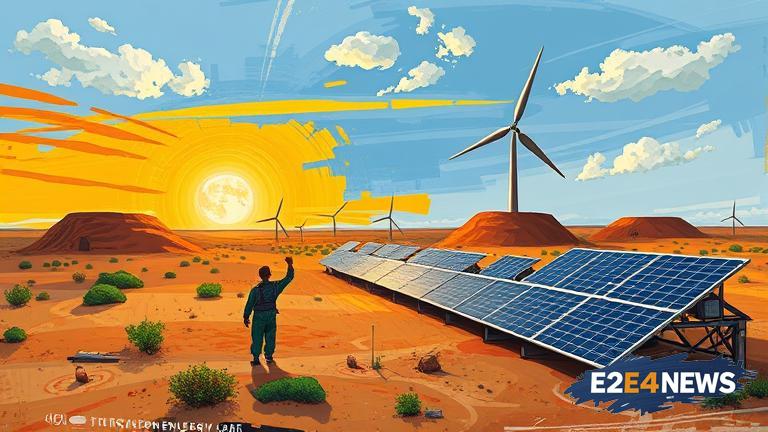The African continent is witnessing a significant shift towards renewable energy, driven by the need to address the pressing issues of energy access, climate change, and sustainable development. With many countries still struggling to provide reliable and affordable electricity to their citizens, renewable energy has emerged as a viable solution. Solar and wind power are leading the charge, with countries like South Africa, Morocco, and Egypt making significant investments in these sectors. The African Union’s ambitious goal of achieving 100% access to electricity by 2030 has further accelerated the adoption of renewable energy. Governments, international organizations, and private sector companies are collaborating to develop and implement renewable energy projects across the continent. The benefits of renewable energy are numerous, including reduced greenhouse gas emissions, improved air quality, and enhanced energy security. Moreover, renewable energy can create jobs, stimulate local economies, and contribute to poverty reduction. However, the transition to renewable energy also poses challenges, such as the need for significant upfront investments, technology transfer, and capacity building. To address these challenges, African countries are exploring innovative financing mechanisms, such as green bonds and crowdfunding. The private sector is also playing a crucial role, with companies like Vestas, Siemens Gamesa, and Enel Green Power investing heavily in African renewable energy projects. International organizations, including the African Development Bank, the World Bank, and the International Renewable Energy Agency, are providing technical assistance, financing, and policy support to African countries. The European Union’s External Investment Plan is another notable initiative, aiming to mobilize investments in renewable energy and other sustainable sectors in Africa. As the continent continues to urbanize and industrialize, the demand for energy is expected to rise, making it essential to prioritize renewable energy development. The potential for renewable energy in Africa is vast, with estimates suggesting that the continent could generate up to 1 terawatt of solar energy and 400 gigawatts of wind energy by 2050. To realize this potential, African countries must develop and implement effective policies, regulations, and incentives to support the growth of the renewable energy sector. This includes streamlining permitting processes, providing tax incentives, and establishing renewable energy targets. Furthermore, there is a need for enhanced regional cooperation and knowledge sharing to facilitate the development of transnational renewable energy projects. The African Continental Free Trade Area agreement is expected to play a significant role in promoting regional trade and investment in renewable energy. As the world transitions towards a low-carbon economy, Africa is poised to become a major player in the global renewable energy market. With its abundant natural resources, growing economies, and increasing demand for energy, the continent is an attractive destination for renewable energy investments. In conclusion, Africa’s renewable energy revolution is gaining momentum, driven by the need for sustainable development, energy access, and climate action. As the continent continues to make progress in this sector, it is essential to address the challenges and opportunities that arise, ensuring that the benefits of renewable energy are shared equitably among all stakeholders.
